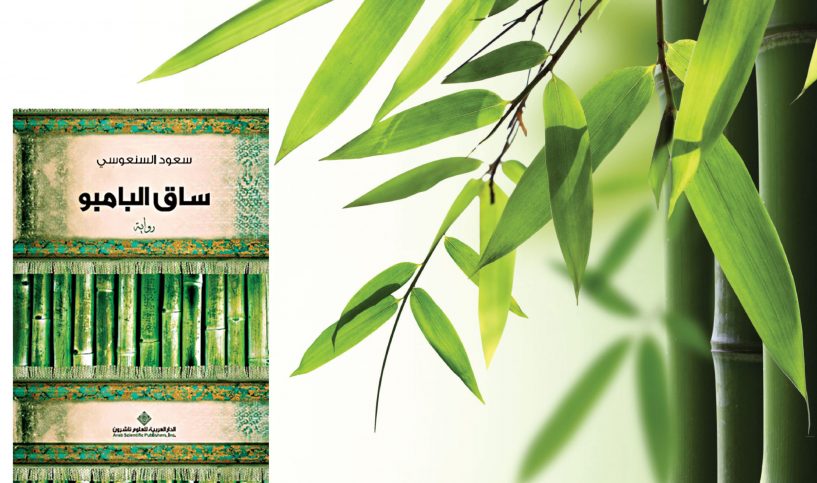Kuwaiti author Saud Alsanousi has won the 2013 International Prize for Arabic Fiction for his portrayal of the lives of foreign workers in Gulf countries in The Bamboo Stalk. The 31-year-old Alsanousi became the youngest winner in the $50,000-prize’s six-year history for his story, as seen through the eyes of Issa, the son of a Kuwaiti father and a Filipina mother.
As a chair of the International panel, Egyptian writer Galal Amin said in a statement on 23rd April (World Book Day) that “all the judges agreed on the superior quality of this novel, both artistically and also in terms of it’s social and humanitarian content.” Additional judges included the Lebanese academic and critic, Sobhi Al-Boustani; head of the Arab Cartoonists’ Association, and owner and chief editor of the independent Syrian daily newspaper Al-Domari, Ali Ferzat; professor of Arabic Literature at the Jagiellonian University of Cracow, Barbara Michalak-Pikulska, and professor of Arabic literature at Manchester University, Zahia Smail Salhi.
A short synopsis of the novel reads very real world and true in its storytelling: On returning to his father’s homeland as an adult, Issa finds himself in a difficult position. Rather than the mythical country his mother has described to him, he discovers he is caught between the biological ties he shares with his father’s family and the prejudices of a traditional society, which views a child of Kuwaiti-Filipina heritage as socially unacceptable.
Alsanousi’s work has appeared in a number of Kuwaiti publications, including Al-Watan newspaper and Al-Arabi, Al-Kuwait and Al-Abwab magazines and he currently writes for Al-Qabas newspaper. His first novel The Prisoner of Mirrors was published in 2010 and in the same year won the fourth Laila al-Othman Prize, awarded for novels and short stories by young writers.
Alsanousi bet five other finalists for the prize. Each finalist, including the winner, will receive $10,000. The other finalists were Iraqi Sinan Antoon for Hail Mary, Tunisian Houcine El Oued for, His Excellency the Minister, Lebanese author Jana Elhassan for Me, She and the Other Women, Saudi Mohammed Hasan Alwan for The Beaver and Egyptian Ibrahim Issa for Our Master.
The prize is supported by the Booker Prize Foundation in London and funded by the Abu Dhabi Tourism & Culture Authority, which marks it’s first year as the new sponsor in 2013. One of the many things that being awarded this prize may do for the winner, is it gives them a chance to reach a larger audience by almost guaranteeing it will be published in English.
Although the prize is often referred to as the ‘Arabic Booker’, this is not instigated or endorsed at all by IPAF or the Booker Prize Foundation, which are two completely separate, independent organizations, and IPAF is not in any way connected with the Man Booker Prize.
The prize was launched in Abu Dhabi in April 2007 with an intention to address the limited international availability of high quality Arab fiction. The shortlisted finalists each receive $10,000, and the winner an additional $50,000. Authors can look forward to increased book sales both within the Arab world and internationally through translation.
The Bamboo Stalk is available through your local book store.











